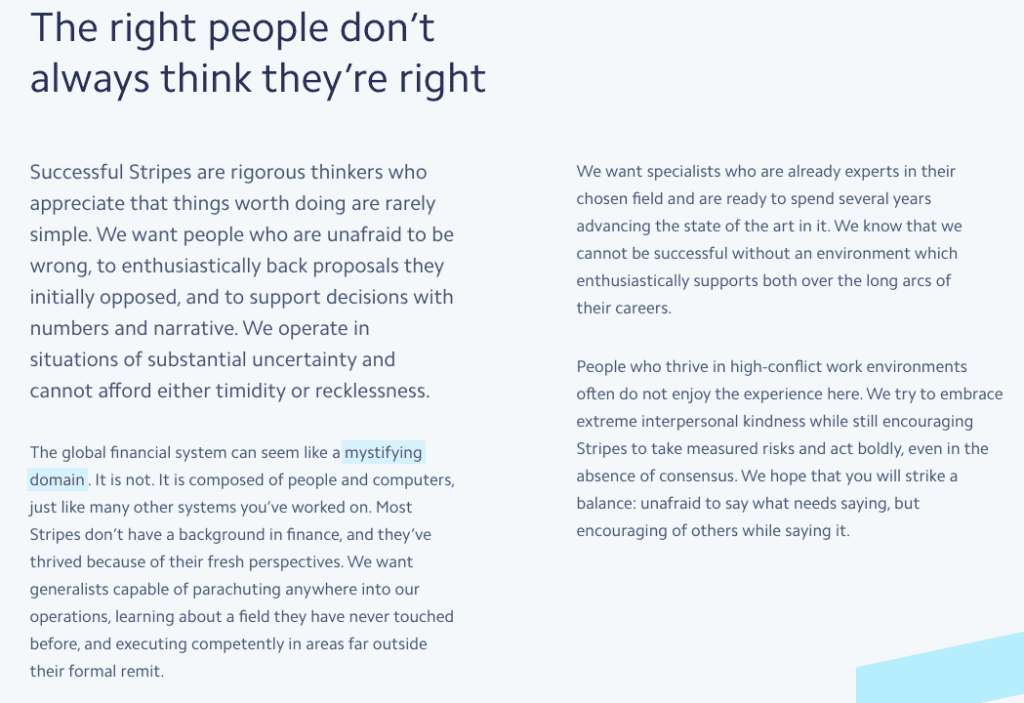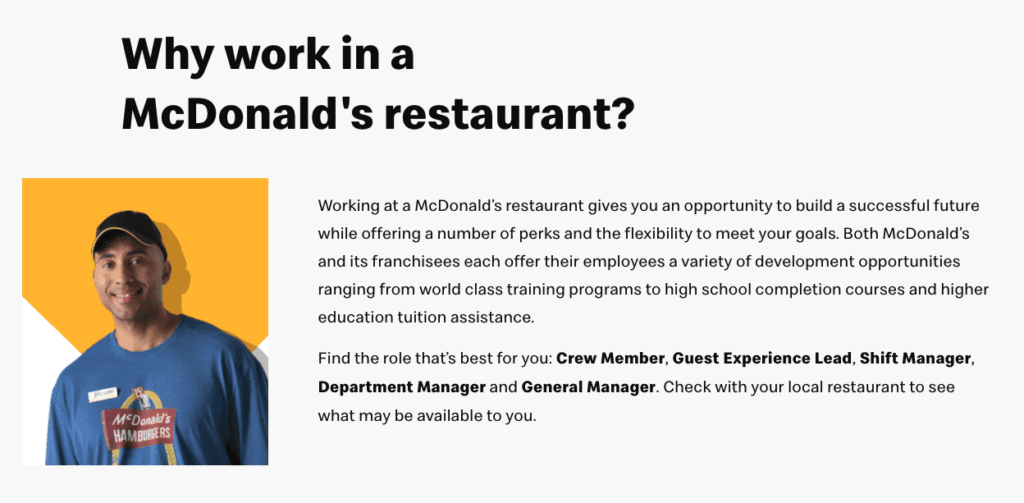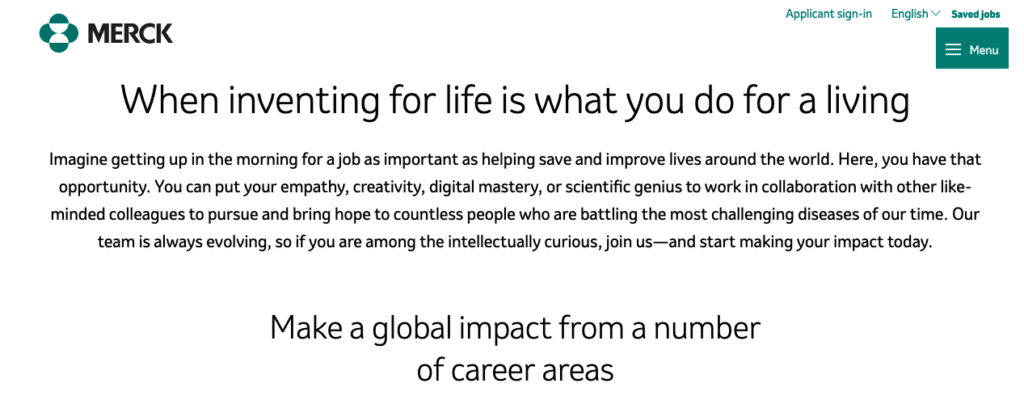
Developing a strong employee value proposition (EVP) is a key to any recruiting and retention effort as part of a larger employer brand. At its most basic level, an EVP represents every value that an employer provides its employees — pay, benefits, training, career development opportunities and so on! Then, it is “marketed” to your workforce.
EVP’s matter, as they are the foundation on which your brand, internal retention and external recruiting efforts are established.
Why begin at the recruiting stage? Employees tend to stay longer at organizations when they are aligned with the mission and vision. So, identifying them during the recruitment process can have a significant impact on your retention rates. Part of employment branding is creating a window that gives outsiders an insider’s view within corporate walls. Your EVP (or EVPs) should be the showcase of that window.
Related: 5 Career Site Features to Showcase Your Employer Brand
According to research from Gartner, “Organizations that effectively deliver on their EVP can decrease annual employee turnover by just under 70% and increase new hire commitment by nearly 30%.” Your EVP differs from your employer brand in that it is internally focused. The employer brand is externally directed and shared with customers. Thus, its focus is on product, service and market position, but rarely organizational culture. However, leading recruitment efforts with your EVP can be the key to hiring loyal employees who are likely to remain with your company longer if your EVP speaks to them.
Examples of Employee Value Propositions That Work
Airbnb unites its employees behind the mission, “Create a world where anyone can belong anywhere.”

Starbucks’ career site states that its employees are, “Empowered to live life well. Starbucks succeeds when our partners do, and we believe that success is best when shared.”

Shopify’s EVP is front and center on its careers site. “Shape the future of commerce, wherever you are. Shopify is rewriting the rules of the modern economy. If you believe in the power of commerce and thrive on problem solving at scale, we want you to join our team.”

An EVP doesn’t have to be one sentence to be effective. Stripe expands on its EVP in a section on its career site that speaks to challenges and opportunities with empathy and kindness.

While it’s one of the best-known brands in the world, McDonald’s EVP answers the question, “Why work for McDonald’s?” and focuses on the development opportunities and education assistance.

Some of the best EVPs, like McDonald’s, answer a simple question: Why work here? Canva gives five reasons on its career site, starting with, “Be part of the story.”

Merck is consistently named as one of the best places to work, with accolades such as Glassdoor’s 2021 Employee’s Choice Award and Forbes’ 2021 America’s Best Employers. The company’s EVP features, “When inventing for life is what you do for a living,” on its careers page to showcase the organization’s many benefits.

Netflix has an EVP that speaks to the company’s investment in people over process. “A great workplace combines exceptional colleagues and hard problems.”

Salesforce showcases its EVP on its career site in a single paragraph that begins, “We believe that business is the greatest platform for change — and that together, we can improve the state of the world.”

Video is a great tool to communicate a multilayered EVP. Unilever’s EVP message is in a video and focuses on leadership, individuality and diversity. Their employer brand video strengthens their EVP with the brilliant line, “We put labels on our products, not our people.”
Adapting Your EVP to Current Employees’ Needs
One great example of continuous EVP development is from retailer Target. The company has performed a considerable overhaul on its career website since the beginning of the pandemic, focusing on the needs of essential employees and showcasing benefits like tuition reimbursement and putting its EVP, “Care, grow, win together.” as the focus of its culture page.

Also, base your EVP on what your employees love about your company (and what they wish to have added) via surveys, focus groups and/or other methodologies. It can be one of the most effective tools in constructing an EVP that stands for your brand.
Related: The Role of Employer Brand in Recruitment Marketing
In a new study, Perceptyx asked more than 1,000 employees to rate 29 EVP attributes in order of importance, and to rank their current employers’ performance on each attribute. These were the top five EVP attributes that were most important to respondents:
- Health benefits
- Compensation
- Retirement benefits
- Work-life balance
- Pay for performance
An EVP never chisels itself in stone. It should be open to adaptation, growth and development. Evaluating how the EVP communicates internally is imperative to being able to communicate your EVP to candidates. This, in turn, helps you find better-fit employees that stand by your company.




